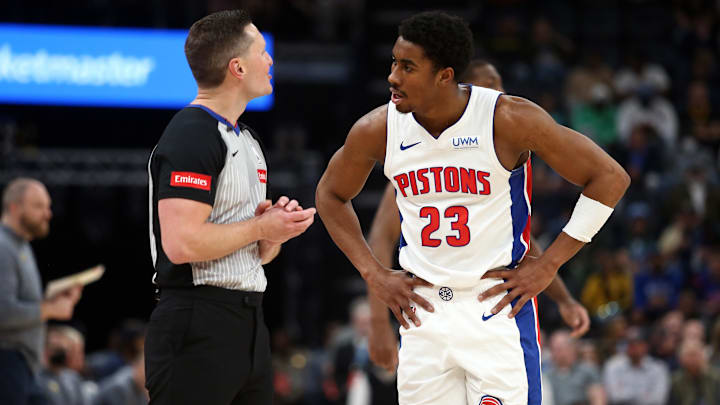The Detroit Pistons went into last season with questions about Jaden Ivey's long-term fit on the roster and enter the offseason with the same uncertainty.
Detroit is coming off of their most successful season since 2008 and finished the season strong, going 30-20 from January 1st after starting the season with a less remarkable 14-18 record.
That January 1st date is also notable due to the major injury that occured in a game against the Magic: third-year guard Jaden Ivey suffered a broken left fibula which kept him out for the remainder of the season.
Despite his absence, the Pistons found success by leaning into their defensive identity. From January 1st onwards, the Pistons ranked 5th in the entire NBA in defensive rating and allowed only 111.2 points per 100 possessions.
An increased role for defensive phenom Ausar Thompson certainly contributed to the improved team defense. Thompson displayed his trademark defensive playmaking and averaged nearly 2 blocks per game and 1 steal per game in the 2025 calendar year, while also showcasing some offensive potential with dazzling athleticism and a knack for transition finishing.
At the trade deadline, the Pistons also acquired veteran point guard Dennis Schrӧder to fill in for Ivey’s role as a secondary playmaker and leader of the second unit’s offense. Despite subpar shooting percentages, Schrӧder did an admirable job in his role.
The Pistons only got 30 games from Ivey, so there are questions that still linger from last season.
Is Jaden Ivey for real as a shooter?
Given the Pistons’ current roster and their go-to starting lineups last season, the most likely starting lineup to begin next season consists of Cade Cunningham, Jaden Ivey, Ausar Thompson, Tobias Harris and Jalen Duren.
While this lineup definitely seems like the 5 best Pistons from last season, there are some potential stylistic clashes on the court which could make it a tough fit. In the playoffs, veteran sharpshooter Tim Hardaway Jr. started in place of Ivey and provided spacing for the rest of the lineup, which is lacking in 3 point shooters. Ivey actually shot a better percentage from 3 last season than Hardaway (40.9% vs. 36.8%) and that was one of the most improved parts of his game, but can he do it for a full season?
With Hardaway slated to hit free agency this offseason, along with fellow veteran guards Malik Beasley and Dennis Schrӧder, it will be up to Ivey to fill in some of the spacing and playmaking provided from those three veterans. The Pistons may keep some of them, but either way Ivey will likely get the start and be asked to provide shooting and secondary playmaking in the starting lineup as well as lead the second unit at times.
Time will tell how the rest of the Pistons roster shapes up around their likely starting group, but Ivey figures to be a key part of the team this upcoming season. His continued development as a shooter and improved decision making (he averaged 3.0 turnovers a game last season) may determine Ivey's long-term place on the team.
